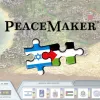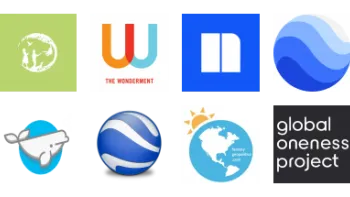Take a look inside 4 images
PeaceMaker: Israeli Palestinian Conflict
Pros: Challenging, engaging, and relevant gameplay
Cons: Feels a bit dated and repetitive
Bottom Line: It'll give students an impactful lesson on the complexity of human conflict, and the ongoing tensions in the Middle East that emphasizes empathy and the delicate nature of diplomacy.
Teachers can use Peacemaker to teach 20th century geography, history, and current events focused on the relationship between Israel, Palestine, the surrounding countries, and their political partners around the world. Playing the game should help build students' empathy and gives students an opportunity to test hypotheses about what kind of government actions bring about peace or sow violence. With its closeness to real-life events, Peacemaker supports research and expository -- or persuasive -- writing projects. These projects could get students to dig into the most up-to-date information on Israel, Palestine, and their neighbors and other opponents and allies, or to take a historical approach and argue about the most significant events or causes/effects for/of specific conflicts or periods of peace. For students participating in mock United Nations or debate -- whether as a unit or in a club or team -- Peacemaker could provide some sound research and perspective to help craft arguments.
Peacemaker is a turn-based simulation game about the Israel-Palestine conflict. Players can choose to lead either society, and must work to curb violence and find a path to peace for both Israel and Palestine. Each turn, players get to implement one diplomatic, military, or political initiative and then see how that decision plays out. Some initiatives fail because stakeholders don't believe it's sincere or that there's enough stability for the plans to work. Occasionally (and sometimes triggered by player actions) positive and negative events pop up on the world map and must be tackled. To be successful, players must balance the competing wants and needs of his/her people and those on the other side as well as provide enough security for cooperation to take root, and continually mitigate violence; think Civilization meets The World Peace Game with just a few tense turns to go before catastrophe.
Peacemaker is a great resource for teaching kids about the Israel-Palestine conflict. It uses real-world issues and archival footage of real events to create a slightly dated but still compelling game for kids to explore. Moreover, the compromise, empathy, and problem-solving skills needed to successfully bring about less violence and more peace should stick with players long after they quit Peacemaker. Failing at peace is so frustrating and saddening that players will remember what worked to bring their virtual societies peace. The decisions students have to make -- like whether to order a missile strike or other attack -- are challenging and hard to forget. And it's rewarding to achieve peace through more constructive measures like cooperating on security, investing in infrastructure, and rebooting trade.











